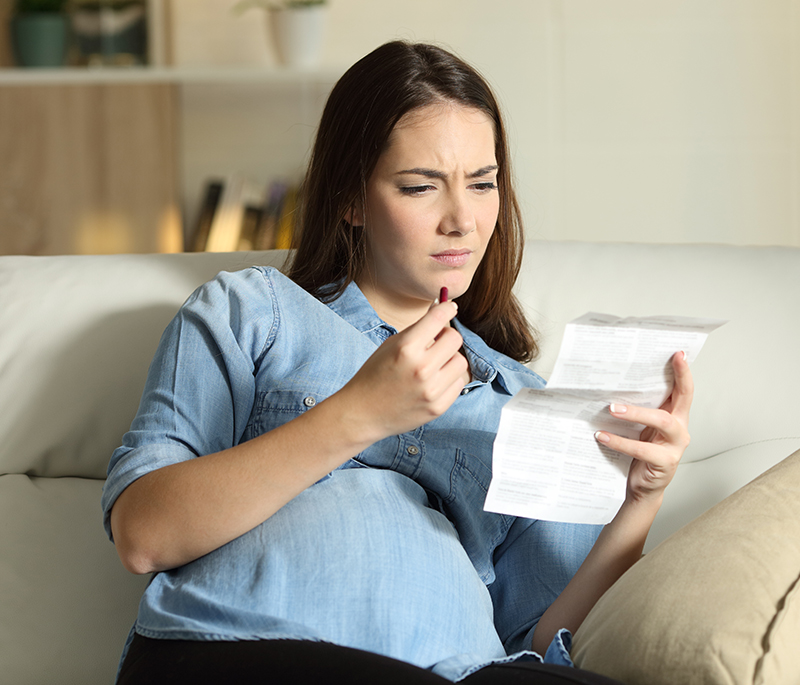Find out more about our Sodium Valproate campaign
What’s the issue?
Sodium valproate is a medicine used to treat epilepsy. It is often prescribed under the brand name Epilim; however other brand names are also used for valproate medicines. For some people it might be the most effective epilepsy medicine, and the only medicine that helps to control their seizures.
However, sodium valproate carries a higher risk than other anti-seizure medications (ASMs) of causing birth defects and developmental problems in babies if taken during pregnancy.
It is crucial that women do not stop taking their epilepsy medicines without talking to a healthcare professional first. Stopping your medication could be harmful for you, and if you’re pregnant, your unborn child.
If you are worried about any of the issues discussed then please make an appointment with your doctor. For information on planning a baby for women with epilepsy please contact the Epilepsy Action Helpline on freephone 0808 800 5050.
Background
Although there was evidence of the risks of using sodium valproate during pregnancy when it was first licensed in 1972, it was not until very recently that these risks were properly communicated to patients. As a result of the failures to ensure that people with epilepsy were aware of these risks, it is estimated that 20,000 children have been harmed.
On 24 April 2018, the Medicines and Healthcare products Regulatory Agency (MHRA) changed the licence for valproate medicines in the UK. Sodium valproate must no longer be prescribed to women or girls of childbearing age unless they are on the pregnancy prevention programme (PPP).
As part of the PPP, the prescriber must make sure the woman or girl understands the risk if she became pregnant while taking the medicine. A risk acknowledgement form must be completed by the prescriber and the woman being prescribed valproate-based medication. This form must be completed and signed during a review which must take place at least once a year.
Rules for men
Recently evidence has suggested that there are risks for men taking valproate. It is thought that fertility could be affected, and there might be a small risk to an unborn child. The risks are lower than those for women.
As a result of this evidence, new rules and advice have been introduced for prescribing valproate to men.
Redress Scheme
Both the 2020 Cumberlege Review and 2024 Hughes Report recommended that a redress scheme be established to meet the cost of providing additional care and support to those children affected, some of whom require 24 hour care.
So far the government have not acted on these recommendations, leaving families of children harmed without support.
Other epilepsy medicines
In January 2021, the MHRA and Commission for Human Medicines (CHM) published a review of epilepsy medicines and the safety of using them during pregnancy.
They reviewed the available safety data for epilepsy medicines during pregnancy and found that a number of other epilepsy medicines pose a risk of harming unborn children if taken during pregnancy.
For other medicines there is not enough information on their use in pregnancy to make any conclusions about their safety when used during pregnancy. This means the risk of harming a baby cannot be confirmed or ruled out.
Following the MHRA and CHM’s review of other epilepsy medicines and their use in pregnancy, Epilepsy Action are now calling for the risks of taking these medicines to be properly communicated to patients and healthcare professionals.
It is also vitally important that more research is carried out into the medicines listed above for which there is not enough information on their safe use in pregnancy. It cannot be acceptable that people with epilepsy do not have the information about whether or not their medication is safe to use during pregnancy.
What we are doing
We have called on the Secretary of State for Health and Social Care to fully implement the recommendations of the Cumberledge Review’s ‘First Do No Harm’ report.
Epilepsy Action support the calls for a redress scheme for families of children harmed by valproate. Some of these children require 24-hour-care, the cost of which has been entirely on the families’ shoulders for years. Both the Cumberlege review and the Patient Safety Commissioner have called for a redress scheme, and we agree that it is beyond time for these families to get the support they need.
All women and men who are prescribed sodium valproate must be made aware of the risks. Epilepsy Action also strongly recommends that all women with epilepsy should receive pre-conception counselling. More needs to be done to ensure that healthcare professionals are given the right time and resources to talk to women and girls with epilepsy about pregnancy. Ideally, they must know about the associated risks before they become pregnant.
Valproate remains an effective epilepsy medication, despite the risks associated with pregnancy. It is important that men and women currently taking valproate do not have their medication changed if they wish to remain on valproate. As part of this, the MHRA also need to ensure that there is clear guidance around who does not need to be on the Pregnancy Prevention Programme (PPP), including women and girls with severe learning disabilities, and women in same-sex relationships.
We are calling for more research into all other anti-seizure medicines (ASMs) to ensure that all people with epilepsy can make an informed choice about their treatment, weighing up the risks and benefits of each medicine.
How you can get involved
We want to hear about how the rules around sodium valproate have affected you, so we can provide feedback to MHRA and raise any problems that people are experiencing.
We are also asking supporters to write to your MP, asking them to support calls for the government to introduce a compensation scheme. You can download the attached letter and find out who your local MP is here.
If you have been affected by any of the issues discussed, then please email campaigns@epilepsy.org.uk.


